Refine search
Actions for selected content:
95 results
Introduction
-
- Book:
- The State in Machiavelli
- Published online:
- 29 December 2025
- Print publication:
- 31 January 2026, pp 1-26
-
- Chapter
- Export citation
Chapter 3 - Kant on the General Will Test and the Categorical Imperative Procedure
- from Part I - Law and Morality: Derivation or Separation?
-
-
- Book:
- Law and Morality in Kant
- Published online:
- 16 December 2025
- Print publication:
- 22 January 2026, pp 54-74
-
- Chapter
-
- You have access
- Open access
- HTML
- Export citation
iPod therefore I am: Using PC Videos to Aid the Teaching of the History of Political Philosophy
- Part of
-
- Journal:
- European Political Science / Volume 9 / Issue 1 / March 2010
- Published online by Cambridge University Press:
- 01 January 2026, pp. 25-33
-
- Article
- Export citation
Political Philosophy and Empirical Political Science: From Foes to Friends?
- Part of
-
- Journal:
- European Political Science / Volume 8 / Issue 1 / March 2009
- Published online by Cambridge University Press:
- 01 January 2026, pp. 37-46
-
- Article
- Export citation
What Are We Doing When We Are Doing Democratic Theory?
-
- Journal:
- Democratic Theory / Volume 6 / Issue 2 / December 2019
- Published online by Cambridge University Press:
- 01 January 2026, pp. 12-26
-
- Article
- Export citation
State and Civil Society in the Political Philosophy of Alexis de Tocqueville
-
- Journal:
- Voluntas: International Journal of Voluntary and Nonprofit Organizations / Volume 9 / Issue 4 / December 1998
- Published online by Cambridge University Press:
- 01 January 2026, pp. 363-373
-
- Article
- Export citation

Johann Gottfried Herder: Letters for the Advancement of Humanity
-
- Published online:
- 13 December 2025
- Print publication:
- 22 January 2026
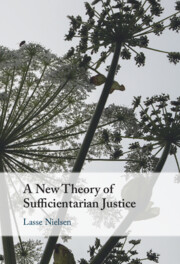
A New Theory of Sufficientarian Justice
-
- Published online:
- 12 December 2025
- Print publication:
- 29 January 2026
Chapter 7 - Public Policy and Cooperation
-
- Book:
- Kant and Environmental Philosophy
- Published online:
- 01 November 2025
- Print publication:
- 20 November 2025, pp 185-219
-
- Chapter
- Export citation
Introduction: Human Rights and Distributive Justice
-
- Book:
- In Defense of Economic and Social Human Rights
- Published online:
- 06 November 2025
- Print publication:
- 20 November 2025, pp 1-30
-
- Chapter
- Export citation
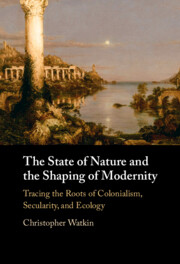
The State of Nature and the Shaping of Modernity
- Tracing the Roots of Colonialism, Secularity, and Ecology
-
- Published online:
- 19 November 2025
- Print publication:
- 18 December 2025
Detained Migrant Children, Autonomy, and Positive Duties
-
- Journal:
- Ethics & International Affairs / Volume 39 / Issue 3 / Fall 2025
- Published online by Cambridge University Press:
- 08 October 2025, pp. 259-284
-
- Article
-
- You have access
- Open access
- HTML
- Export citation
Chapter 11 - The Natural Preconditions of Political Freedom
- from Part V - Reconciling between Freedom, External Authority, and Nature
-
-
- Book:
- Platonic Autonomy
- Published online:
- 07 August 2025
- Print publication:
- 31 July 2025, pp 235-255
-
- Chapter
- Export citation
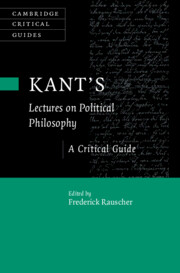
Kant's Lectures on Political Philosophy
- A Critical Guide
-
- Published online:
- 18 July 2025
- Print publication:
- 07 August 2025
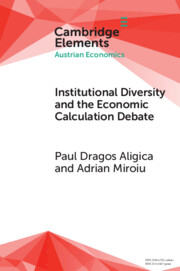
Institutional Diversity and The Economic Calculation Debate
- The Feasibility Issue Revisited
-
- Published online:
- 04 July 2025
- Print publication:
- 24 July 2025
-
- Element
- Export citation
The value of dignity appeals: evidence from a social media experiment
-
- Journal:
- Political Science Research and Methods , First View
- Published online by Cambridge University Press:
- 24 June 2025, pp. 1-6
-
- Article
-
- You have access
- Open access
- HTML
- Export citation
Introduction
-
- Book:
- Karl Marx and the Actualization of Philosophy
- Published online:
- 17 April 2025
- Print publication:
- 24 April 2025, pp 1-17
-
- Chapter
- Export citation
Chapter 2 - Marx’s Critique of Hegel: Politics
-
- Book:
- Karl Marx and the Actualization of Philosophy
- Published online:
- 17 April 2025
- Print publication:
- 24 April 2025, pp 39-61
-
- Chapter
- Export citation
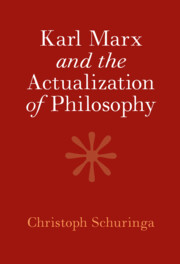
Karl Marx and the Actualization of Philosophy
-
- Published online:
- 17 April 2025
- Print publication:
- 24 April 2025
4 - Fairness and Artificial Intelligence
- from Part I - AI, Ethics and Philosophy
-
-
- Book:
- The Cambridge Handbook of the Law, Ethics and Policy of Artificial Intelligence
- Published online:
- 06 February 2025
- Print publication:
- 13 February 2025, pp 79-100
-
- Chapter
-
- You have access
- Open access
- HTML
- Export citation
